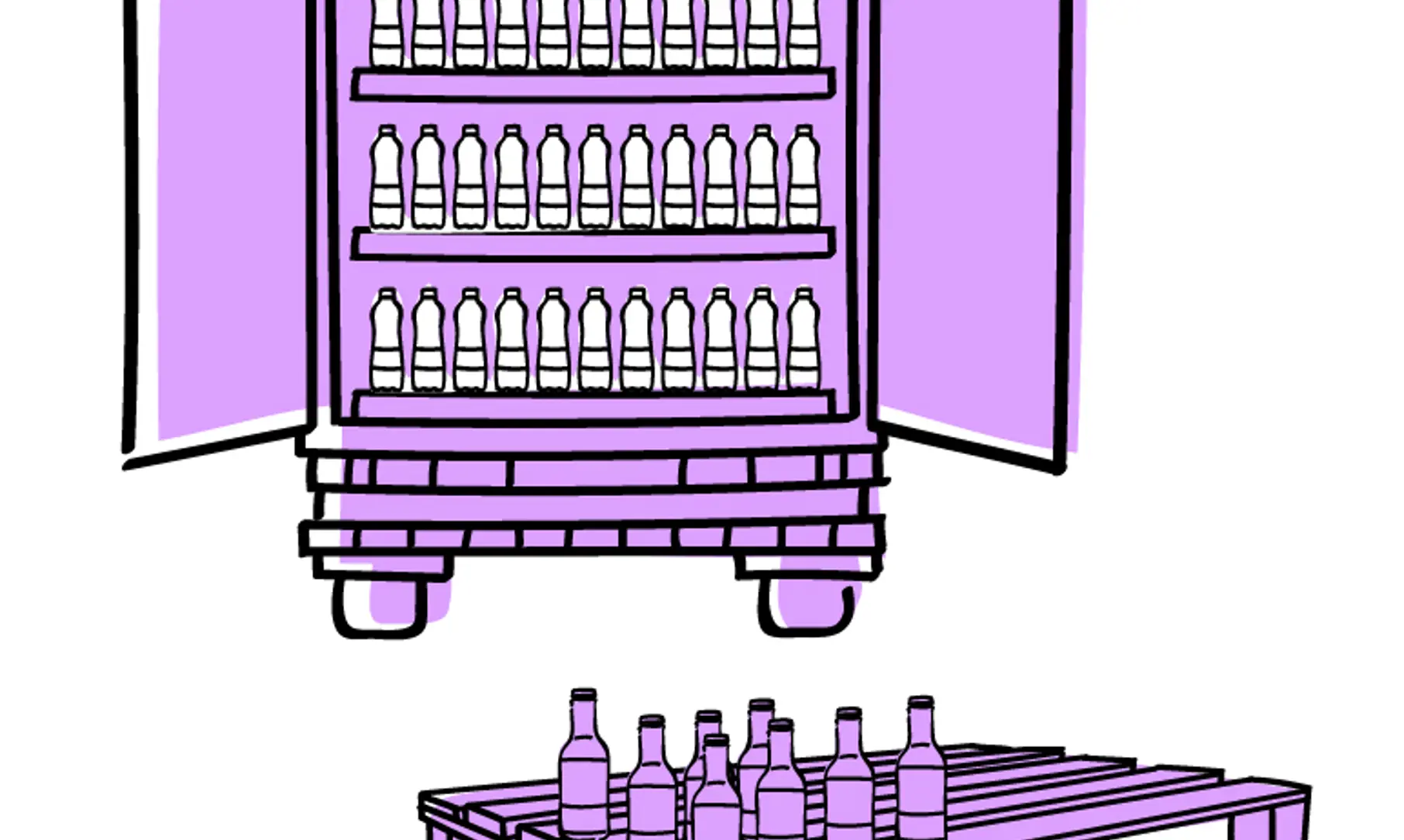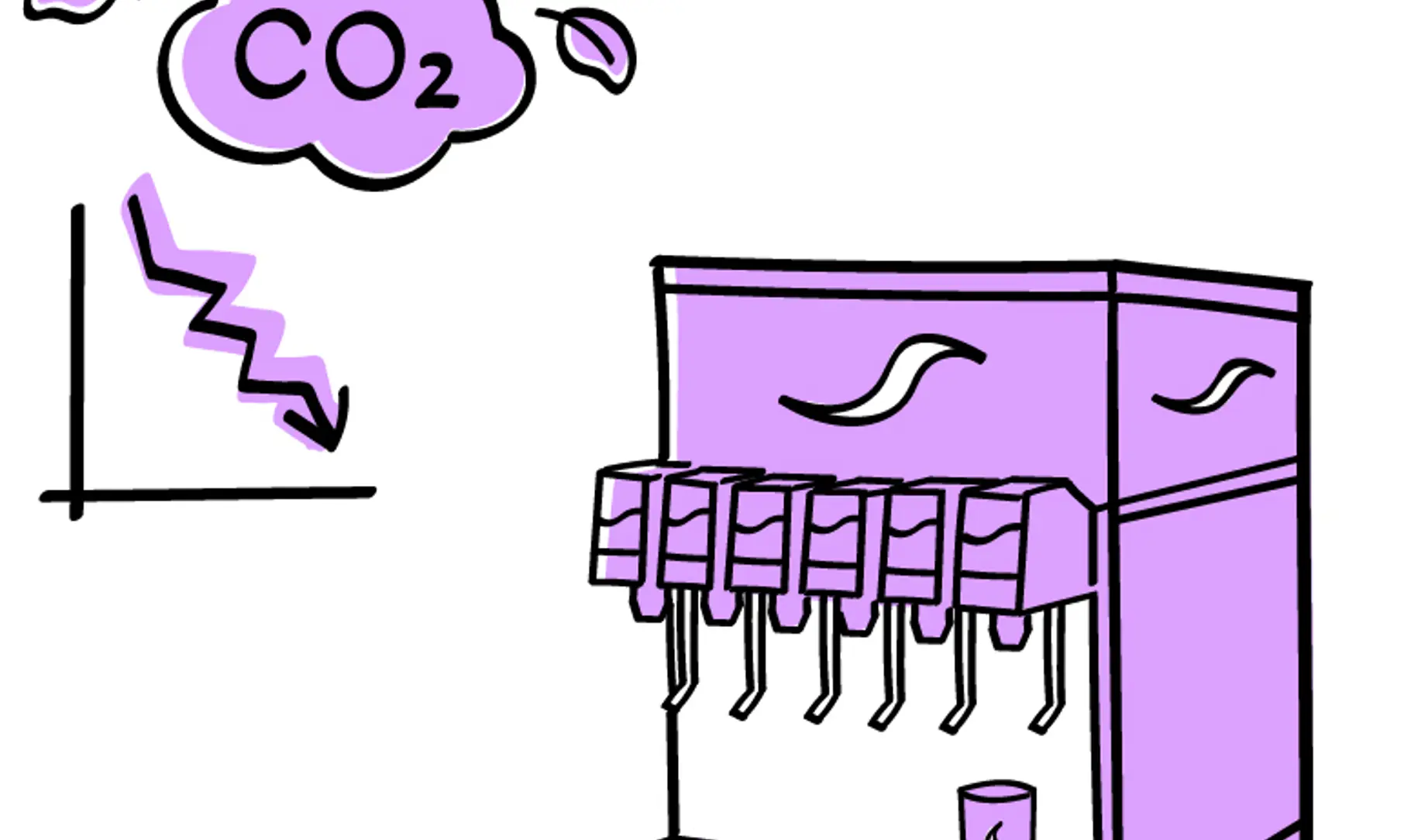Sustainability first with smart dispensing

We all know that sustainability is a complex area to navigate, especially for food and beverage products. There are multiple aspects to consider from sourcing and traceability to energy efficiency and overall environmental footprint. And every aspect matters in making a difference.
Consumers, especially younger ones, support environmentally friendly business decisions. For restaurants, this includes menu offerings as well as the way the business operates.
As manufacturers look to reduce their environmental footprint in diverse ways, what are the biggest challenges in making beverages more sustainable? And how does smart dispensing technology fit into the green scheme of things?
The challenges
Factors contributing to the footprint of beverages include sourcing, water consumption, packaging, transportation, energy use, and waste. The volume and weight of beverages are significant considerations too when it comes to storing and transporting the drinks as these lead to higher emissions because of more space requirement, heavy vehicle usage, fuel consumption, and related energy use.

There is also a limitation on the distribution range of beverages due to the cost of basically shipping water around. Using concentrates and simply sourcing the water at the site of the restaurant, etc., the effective market of a beverage brand can expand more easily.
The technology
Smart beverage dispensing is a digitally enabled intelligent process that mixes precise doses of concentrated ingredients with water and sweetener to create a wide range of drinks. The concentrates are packaged in different formats, such as bag-in-box, pouches, and cartridges. The concentrated ingredients are decoupled to offer a variety of flavours and allow sweetness to be added in while dispensing.
The sustainability factors
At the basic level, high-concentration products used in smart dispensing machines require less packaging and are more energy efficient during transportation and storage. Moreover, up to 99% of the concentrate is extracted and used efficiently with bag-in-box, leading to minimal waste of even very viscous products. Smart shelf-life management, enabled by intelligent machines, also help in reducing waste further.

The motto: ship less, no waste
The technology enables manufacturers to ship less by taking out the water from the beverage and adding it in at the site. This makes the product lightweight with reduced volume and less packaging than packaged ready-to-drink beverages, helping reduce emissions and expand the distribution range for beverage brands. The shelf-stable packaging ensures there is no special temperature requirements during transit and storage, further reducing energy use and waste. The digital capabilities of smart dispensing machines continue to ensure food safety and maximal usage by tracking the opened-on and use-by data once the product is in use.
The sustainable pour
Dispensed beverages, with flexible packaging, can help both restaurants and manufacturers reduce their carbon footprint significantly throughout the supply chain. The RFID-enabled, tamper-evident packs in closed-loop dispensing systems can also enable end-to-end ingredient-level traceability, if required. When using dispensing machines, food service outlets can also drive up their sustainability initiatives with the use of reusable or recyclable cups, with no dependency on manufacturers. Take Coca Cola’s innovative micro-chipped, self-serving reusable cups that can be used with their Freestyle dispensing machines.
In the next part of the series, we will look at the long-term impact the use of smart dispensing has on brand value. Subscribe to our exclusive bi-weekly newsletter to know more about dispensing and other trends in food and beverage.
- 5月 25, 2023
